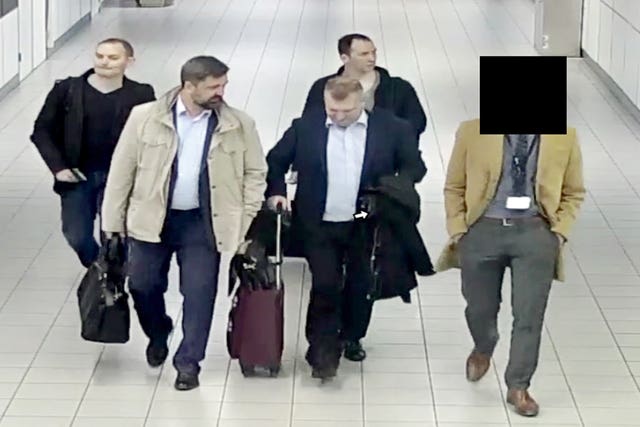
Russia’s ambassador has accused Britain of waging an “aggressive anti-Russian campaign” which has left relations between the two countries at a “very low level”.
During a lengthy press conference at the embassy in London, Alexander Yakovenko dismissed recent high-profile claims of cyber attacks by the Russian GRU military intelligence agency and involvement in the Salisbury nerve agent incident.
He said a four-man GRU “close access” team accused by the British and Dutch of trying to hack the computers of the Organisation for the Prohibition of Chemical Weapons in The Hague had simply been in the city to conduct routine security checks at the Russian embassy.
And he complained the UK authorities were continuing to refuse to co-operate with Moscow over the investigations into the attempted poisoning of former spy Sergei Skripal in Salisbury and the murder in London of Russian businessman Nikolai Glushkov.
He claimed the UK actions were intended to divert attention from the Salisbury incident and from Brexit.
The result of what he said had been a “well-orchestrated campaign” to discredit his country was to reduce UK-Russia relations to a “very low level”.
“The reason for that lies in an aggressive anti-Russian campaign launched by the current Tory Government and supported by British media,” he said.
“The Conservative Government has been acting in a completely unconstructive way by breaching multiple bilateral and international agreements and refusing to co-operate with Russia officials on the Salisbury incident or the death of the Russia national Nikolai Gushkov.

“The bilateral high-level political dialogue is currently frozen. That was not our initiative. That was the initiative of the British Government.”
Mr Yakovenko dismissed claims by the Bellingcat investigative website to have unmasked the true identities of the two suspects in Salisbury case – originally identified by the UK authorities by the aliases Ruslan Boshirov and Alexander Petrov.
The website said their real names were Anatoliy Chepiga and Alexander Mishkin and that they were both highly-decorated officers in the GRU.
However, Mr Yakovenko insisted that there was no reason to doubt their assertion in a Russian television interview that they were actually Boshirov and Petrov and that they had been innocent tourists on a visit to Salisbury when the attack on Mr Skripal took place.
“We have the official statement of these people and we do not have any reason not to trust them,” he said.
He repeated Russian claims that Bellingcat was simply a tool of the “British special services”.
“Bellingcat is not the media. This is the tool of the deep establishment to leak certain things,” he said.


Comments: Our rules
We want our comments to be a lively and valuable part of our community - a place where readers can debate and engage with the most important local issues. The ability to comment on our stories is a privilege, not a right, however, and that privilege may be withdrawn if it is abused or misused.
Please report any comments that break our rules.
Read the rules here